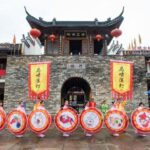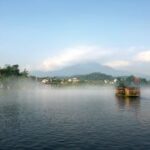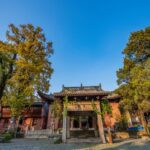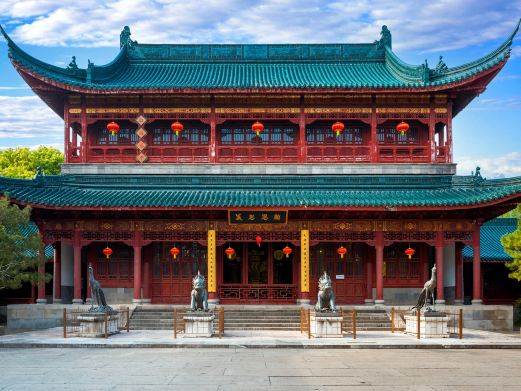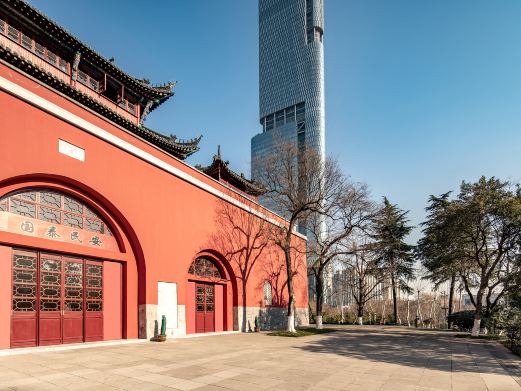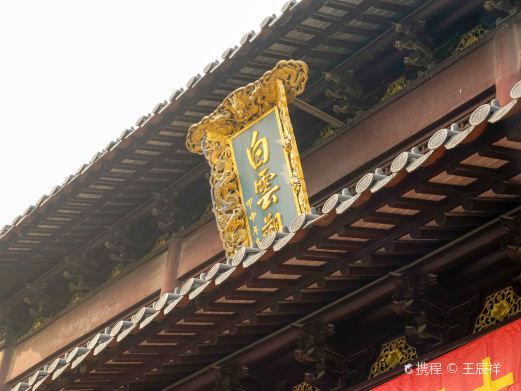The Mingyue Temple was built in the second year of Qingtai in the Later Tang Dynasty (935 AD) and was founded by Monk Mingzhi. At the beginning of the Hongwu period of the Ming Dynasty, it was merged into the Puxian Temple. In 1890 (the sixteenth year of Guangxu in the Qing Dynasty), Monk Daogen renovated it. It was destroyed during the ‘Cultural Revolution’ and was restored and opened in 1993. There used to be a large pear orchard near the Mingyue Temple. Every early spring, ‘thousands of pear trees are in full bloom’, becoming a scenic spot in the ancient town. Li Guo of the Qing Dynasty had the verse ‘Pear blossoms at Mingyue Temple, fragrant grass at Cattle Grazing Nunnery’, which was widely recited for a time. The architecture of the Mingyue Temple is quite distinctive. The layout structure of the Mahavira Hall and the Sutra Depository is similar to that of the nearby Lingyan Mountain Temple. The Mahavira Hall is the center of the Mingyue Temple complex. There are five main halls with two-story upturned eaves, solemn, majestic, magnificent and splendid. In the center of the main hall, Sakyamuni Buddha is enshrined. On both sides are Amitabha Buddha and Bhaisajyaguru Buddha, collectively known as the ‘Three Buddhas of the Past, Present and Future’. Behind the Buddha statue, Avalokitesvara Bodhisattva is enshrined. Standing on a lotus flower and holding a willow branch with a pure bottle in hand, she has a reserved and gentle demeanor. Opening hours: 8:00 – 16:30 (winter), 8:00 – 17:00 (summer). Preferential policies: Children: Children under 6 years old (including 6 years old) or under 1.4 meters in height (including 1.4 meters) are exempt from admission tickets with valid identity documents. Free. Children, students and the elderly: Minors aged 6 years old (excluding 6 years old) to 18 years old (including 18 years old), full-time undergraduate students and below, and the elderly aged 60 years old (including 60 years old) to 70 years old (excluding 70 years old) can enjoy half-price tickets with valid identity documents (please purchase discounted tickets at the scenic spot on your own). Half price. The elderly: The elderly aged 70 years old (including 70 years old) and above are exempt from admission tickets with valid identity documents. Free. Military personnel: Active servicemen of the People’s Republic of China and retired military cadres are exempt from admission tickets with valid identity documents. Free. Disabled people: Disabled people and one accompanying person of severely disabled people are exempt from admission tickets with valid identity documents. Free. Supplementary note: The above information is for reference only. The specific information is subject to the announcement of the scenic spot.
Mingyue Ancient Temple (Ming and Qing Street)
The Mingyue Temple was built in the second year of Qingtai in the Later Tang Dynasty (935 AD) and wa[...]

